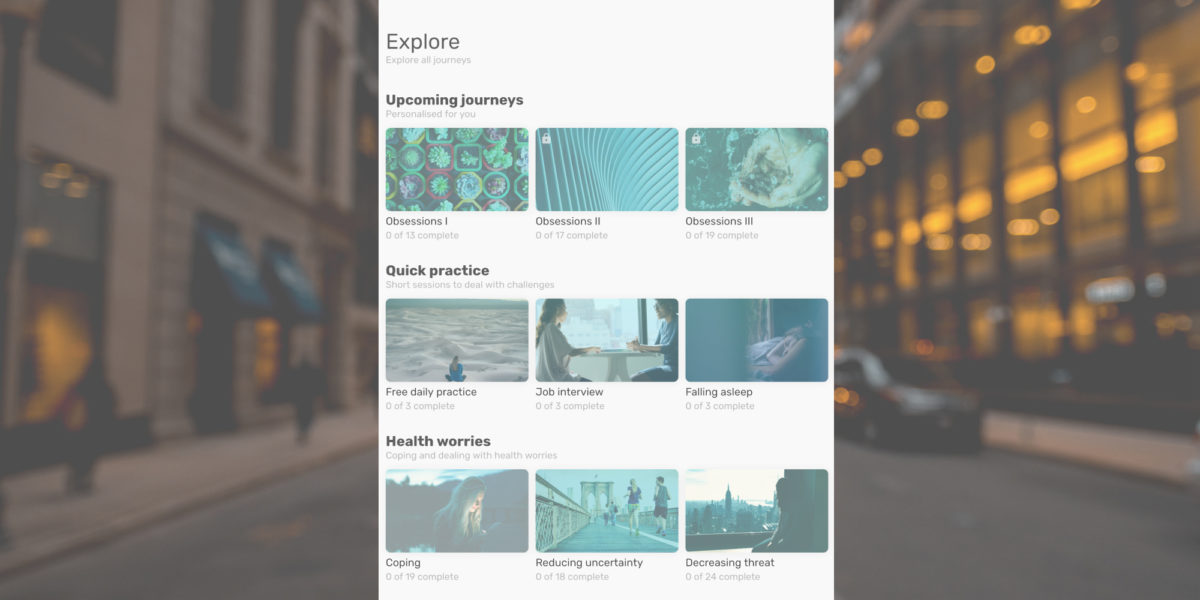The app is based on the core principles of CBT. While not being a “therapy” or “treatment” in itself, It directly targets the person’s thought patterns.
Break negative thinking habits, embrace positive change and explore over 1000+ exercises.
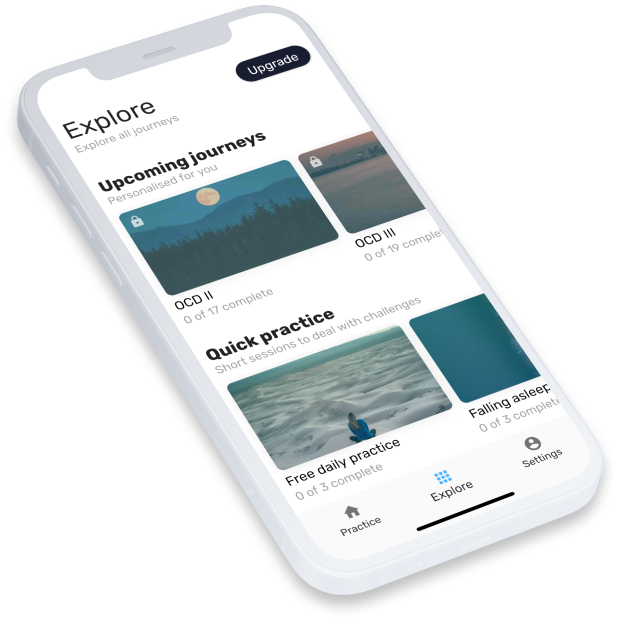
FAQ for OCD.app
What is OCD.app?
OCD.App is a digital platform designed to support individuals managing Obsessive-Compulsive Disorder (OCD). It provides resources, tools, and techniques to help users understand their condition, manage symptoms, and work towards recovery.
Can OCD.app replace therapy?
While OCD.app offers valuable resources and support for managing OCD, it is not a replacement for professional therapy. The app is designed to complement therapy by providing additional tools and support outside of therapy sessions. If you are experiencing severe OCD symptoms, it is important to seek help from a qualified mental health professional.
How can OCD.app help me manage my inner monologue?
OCD.app provides techniques and exercises aimed at helping you manage your inner monologue. These include engagement with thoughts, mindfulness exercises, cognitive behavioral techniques, and game-like interactions. By practicing these techniques regularly, you can gain more control over your thoughts and reduce the impact of intrusive thoughts on your daily life.
What should I do if I have negative thoughts?
Having negative thoughts is a common experience for individuals with OCD. OCD.app offers strategies to help you address and manage these thoughts, such as:
- Identifying and challenging negative thought patterns.
- Practicing mindfulness to stay present and reduce the power of negative thoughts.
- Using exposure and response prevention techniques to gradually reduce the fear and anxiety associated with these thoughts.
It’s important to remember that managing negative thoughts is a skill that takes time and practice. Be patient with yourself and consistent in your practice.
Can the app help me understand my triggers?
Yes, OCD.app includes features that can help you identify and understand your triggers. By tracking your symptoms and the circumstances in which they occur, you can start to recognize patterns and triggers for your OCD. This awareness can be a powerful tool in managing your condition, as it allows you to prepare and apply coping strategies more effectively.
Is there a community aspect to OCD.app?
Yes! Our Community Toolbox feature allows people like you to share their negative and supportive thoughts, browse other people’s thoughts and add them to their personal toolbox. It’s a great way to help others and get help from others – while staying completely anonymous.
How often should I use OCD.app?
The app is designed to be used daily, in short 3-4 minute sessions.
After completing your initial track, you can switch to low intensity use of 1-2 times per week.
Is OCD.app suitable for everyone with OCD?
OCD.App is designed to be a supportive resource for individuals with OCD. However, the effectiveness and suitability of the app can vary depending on the individual’s specific symptoms, severity of condition, and personal preferences. It’s always recommended to consult with a mental health professional to determine the best approach to managing your OCD.
How do I start using OCD.app?
Getting started with OCD.App involves:
- Download the app from your device’s app store
- Launch the app
- Complete onboarding and personalization (1-2 minutes)
- Exercise daily
- Explore the various tools, resources, and community features available to you
For more specific questions or technical support, refer to the app’s help section or contact the support team directly.
Research has shown that using the app for at least 14 days can build supportive thinking, reduce maladaptive beliefs and increase resilience.
Similarly to CBT, these effects are proven to be lasting. In one study, using the app for 14 days has built resilience that lasted for at least 30 days, even without using the app after the initial 14 days.
OCD modules in the app
OCD I (Basic)
Self assessment
Embracing and believing in change
Cope with threat
OCD III (Advanced)
Uncertainty
Perfectionism
Confidence in memory
OCD III (Expert)
Fear of contamination
Fear of harm
Fear of abandonment and trusting
How do I start?
We created an easy to download and use app that utilizes the latest mobile and big data technology.
- Download the app
- Complete the tutorial. It will guide you through the main principles of the app.
- Personalize based on your goals, age and gender
- Form a healthy habit by training daily
- Important! Don’t use the app when you have compulsions. The app should not be used to seek reassurances in times of need. Instead, use it first thing in the morning or before going to bed
- When you gain confidence, improve your access to helpful thinking and acquire supportive thinking patterns, you can keep using the app on a regular basis – for example twice a week
- Tell us about your story, and share your success with others
Depression
Self assessment
Embracing and believing in change
Cope with threat
Relationship OCD
Fear of thoughts
Distrust
Embarrassment
PTSD / Trauma
Belief in change
Dangerous world
Self-trust
Attachment anxiety
Articles about OCD
-
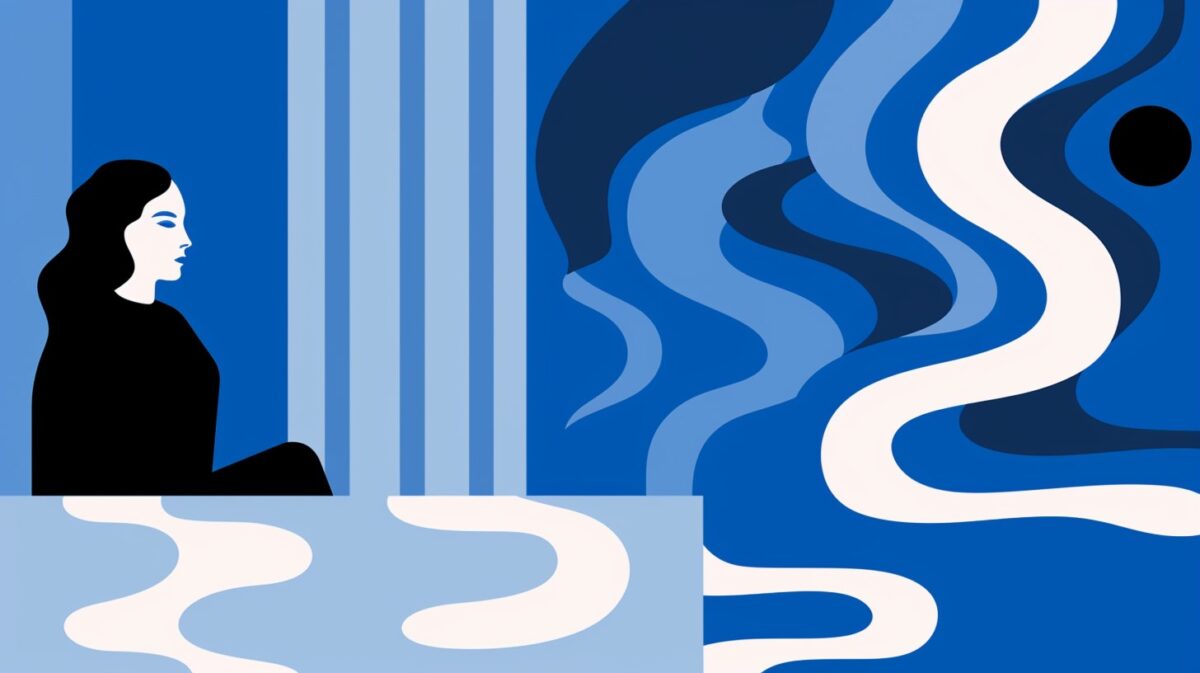
Session 6: Confidence in memory
Our ‘Sessions‘ series explores sessions at the Clinical Psychologist’s Office Session 6 at the Clinical Psychologist’s Office The familiar calm…
·
-

Test Yourself: Do I Have “Pure O” OCD?
Take the Pure O OCD Quiz This quiz helps identify potential OCD symptoms, focusing on intrusive thoughts, fears, compulsions, and…
·
-
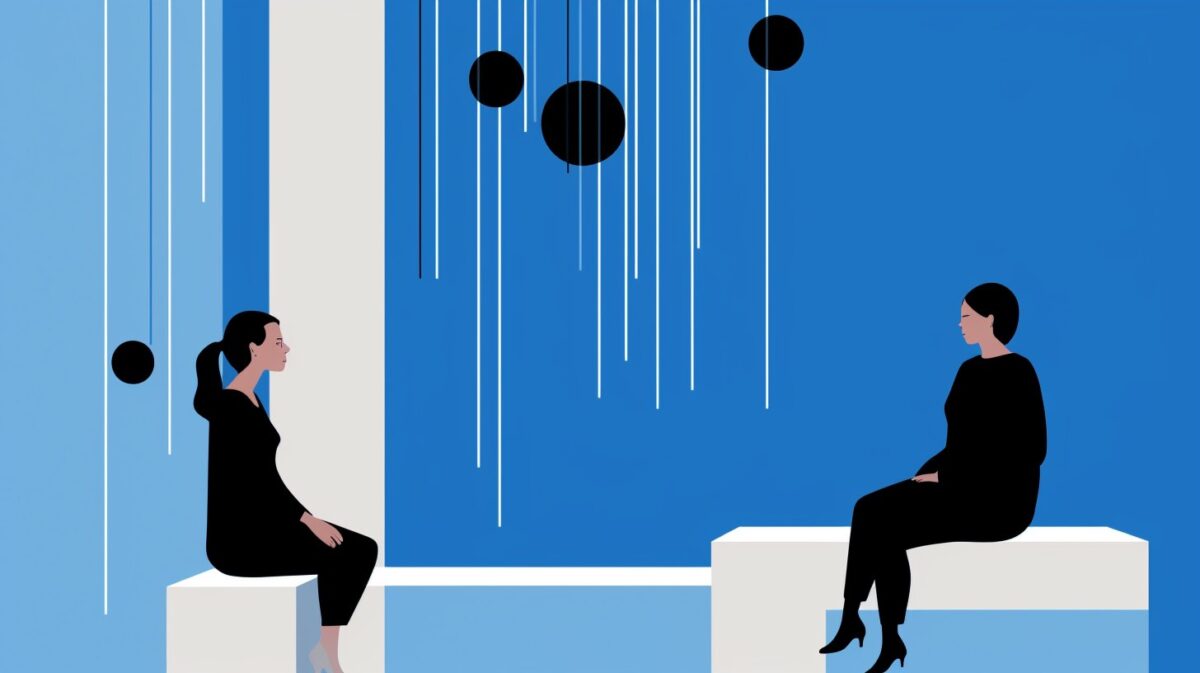
Session 4: Fear of Self and how to deal with it
Our ‘Sessions‘ series explores sessions at the Clinical Psychologist’s Office Session 4 at the Clinical Psychologist’s Office The room remains…
·
-
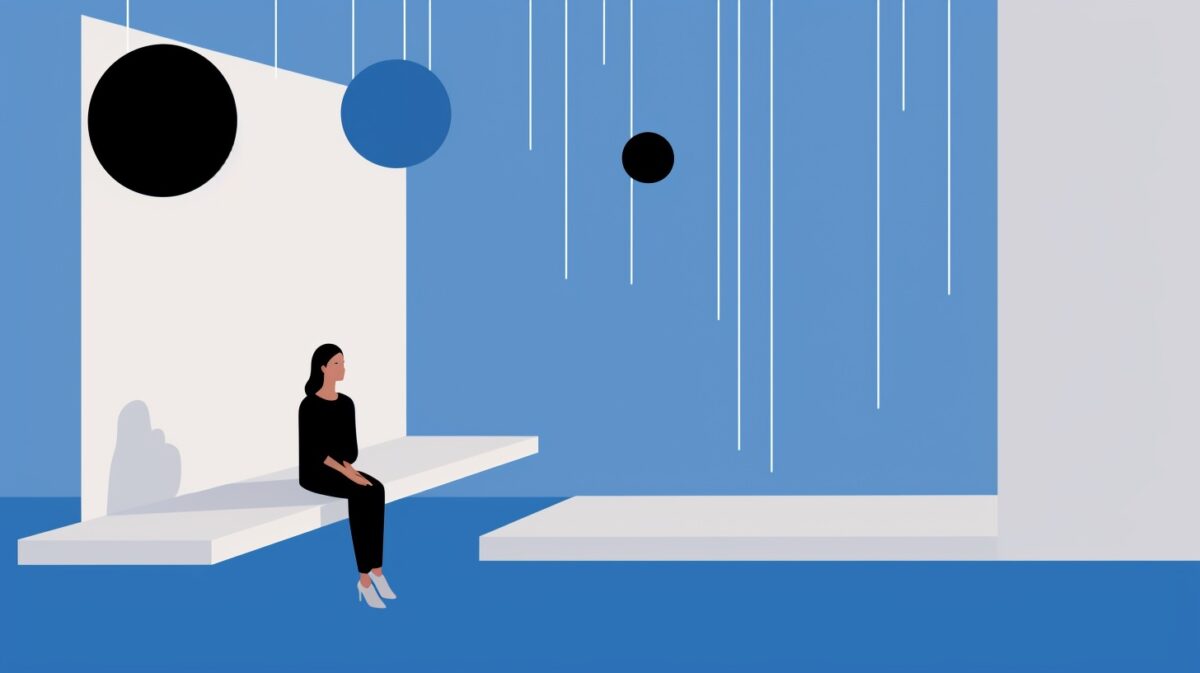
Session 2: Sue has OCD, now what’s the plan?
Our ‘Sessions‘ series explores sessions at the Clinical Psychologist’s Office Session 2 at the Clinical Psychologist’s Office The room remains…
·
-

Unleash Your Inner Strength: Strategies to Overcome OCD Negative Self-Talk
Discover powerful strategies to overcome negative self-talk associated with OCD. Unleash your inner strength and effectively manage your thoughts for…
-

The OCD Paradox (and how to solve it)
I’m Eva, a wedding photographer who’s had the privilege of capturing countless beautiful moments. That joy was tainted when I…
·
-
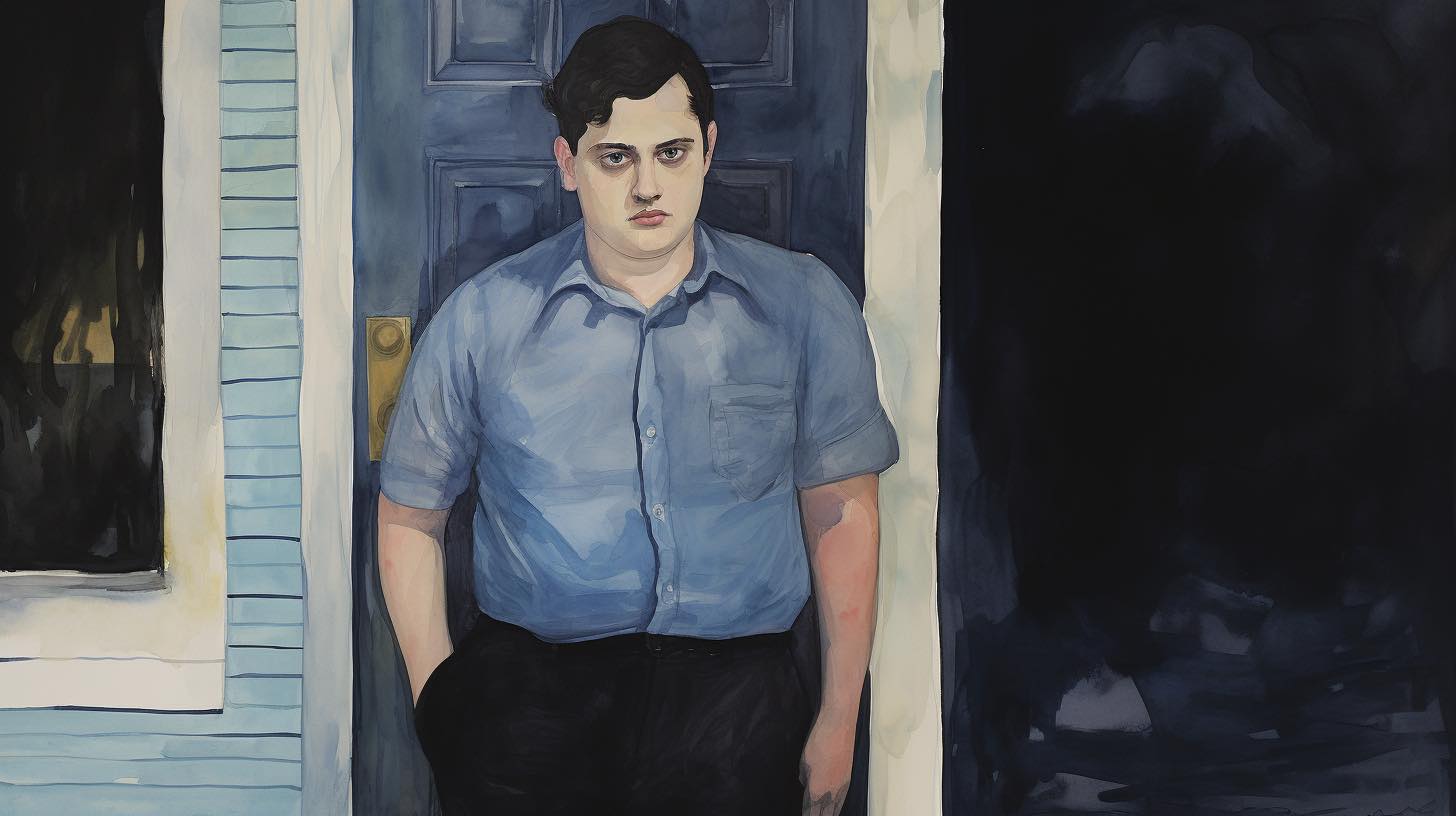
How OCD affects your daily life – and 5 tips to improve it
Obsessive-Compulsive Disorder (OCD) is a chronic mental health condition that can significantly impact a person’s daily life. Here are some…
-

The most common non-OCD mental disorders that people with OCD have
Obsessive-compulsive disorder (OCD) is a complex mental health condition that is frequently accompanied by other disorders. These co-occurring disorders include…
-

OCD Tips: The Only List You Will Ever Need (Until There’s a Better One)
Obsessive-Compulsive Disorder (OCD) is a complex mental health condition characterized by recurring, unwanted thoughts, ideas, or sensations (obsessions) that drive…
-

How we think, Part 1: Generalization and OCD
Cognitive biases, including the problematic generalization often seen in OCD (Obsessive Compulsive Disorder), can occur in various situations. They can…
·
-

ROCD or Wrong relationship: How do I know?
I wanted to chat a bit about something I often see in my practice, something called Relationship Obsessive-Compulsive Disorder, or…
-

Is OCD neurodivergent?
My name is Eva, and I have Obsessive-Compulsive Disorder, or OCD for short. My brain works a bit differently than…
